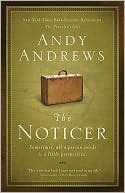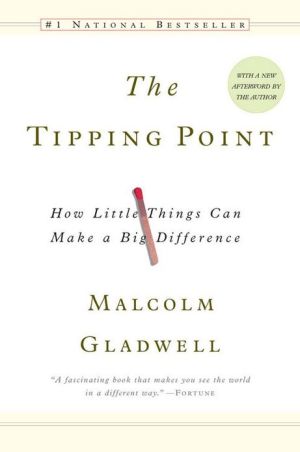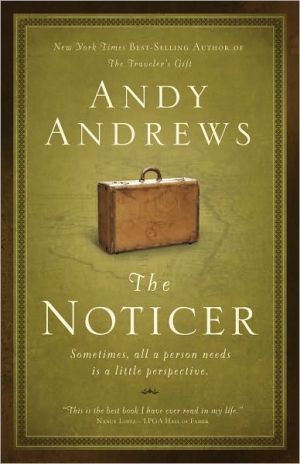Truth about Everything: An Irreverent History of Philosophy
Throughout history, well-known theories of reality, knowledge, mind, and most particularly the "professional" philosophers who rely on them for their intellectual existence, have sought to isolate universal truths and structure the history of philosophy to distinguish schools and movements that seek a comprehensive understanding of our world. But in this well-intended pursuit of truth, have we lost sight of what philosophy is? Matthew Stewart believes we have.\ His rowdy guided tour of the...
Search in google:
The Truth about Everything is an approach to the history of philosophy from well outside the modern institutional framework of knowledge. With an unusually frank and irreverent style, using parables, imaginary dialogues, and illustrations, Matthew Stewart picks apart the myths which make up widely accepted versions of the history of philosophy and offers in their place a realistic assessment of individual philosophers and schools and their contributions to the advance of human knowledge and happiness. This dramatic recasting of the history supports two theses: First, rational consciousness is not, as the usual story has it, the outcome of a historical process and the sole property of the Western tradition. Second, philosophy is not a specialized, professional discipline with privileged access to reason, knowledge, and/or virtue. Stewart suggests instead that philosophy is a general disposition, an attitude of respect and love for knowledge, which can be made a part of anyone's life, at any time. Publishers Weekly Stewart, an ex-academic who holds a Ph.D. in philosophy from Oxford and works as a management consultant in New York City, has written a deliciously iconoclastic and often funny historical survey of Western philosophy. In his analysis, Plato, Socrates, Heraclitus and their circle ("a group of people who walked around in bedsheets") did not invent Western thought; instead, they revived an earlier, mystical tradition that perpetuated theological biases. In Stewart's often unconventional assessments, Sartre mostly purveyed familiar truisms in fancy dress; Nietzsche was more of an enlightenment thinker than an irrationalist; and Spinoza, often regarded as a rationalist crusader for modernity, was actually a throwback to the Stoics, fetishizing reason as a magical key to the cosmos. Leavening his thoroughgoing critiques with imaginary dialogues and letters, off-the-wall parables, short biographical sketches, barbed satires and deceptively simple drawings, Stewart deflates what he considers the inflated claims, obscure language, pretensions and grandiose metaphysical structures of Heidegger, Wittgenstein, Derrida, Kant, Hegel, Descartes, Kierkegaard and Foucault. This irreverent tour will goad armchair philosophers to independent thoughtDfulfilling Stewart's belief that philosophy is, by its nature, the province of amateurs. (Mar.)
Acknowledgment5List of Illustrations19Introduction21The Ancient Greeks29The Presocratics: The Primordial Soup of Philosophy35The Sophists: The Bad Guys55Socrates: So This Is the Good Life?61Plato: The Last Dialogue71Aristotle: A Day at the Zoo80The Hellenistic Philosophers: On How to Get By in Life101Neoplatonism: Twilight of the Pagans113Eastern Philosophy: Just Say Om121Medieval Philosophy: Trouble in the Monastery141Early Modern Philosophy: Avant Garde or Rearguard?153Descartes: I Drink Therefore I Am157Spinoza: One is the Happiest Number170Leibniz: Monads for Sale177Empiricism: The Poor Man's Dialectic, or How Empiricism Becomes Mysticism and Then Strangely Disappears184Locke: A Man of Ideas192Berkeley: The Babbling Bishop196The Dramas of Mind and Body200Mind and Bodies (Illustrations)204Hume: A Man for All Senses209Odds and Ends from Early Modern Philosophy: Just in Case You Thought That Was All ...218Meanwhile in France...: Turning on the Lights222German Idealism: The Empire of the Air225Kant: The Absolutely Critical Philosophy227Fichte: An I for an I252Schelling: The Bright Young Thing256Hegel: Lord of the Philosophers257Those on the Edge285Schopenhauer: It's a Mad, Mad, Mad, Mad World287Kierkegaard295Nietzsche: Vanishing Perspectives299The Trash Can of the History of Philosophy307Twentieth-Century Philosophy321Continental Philosophy: Unthought323Husserl: Another Head Case324Heidegger: Much Ado about Being326Sartre: Being-in-the-Cafe347For Continental Junkies355Foucault: In Need of Discipline and Punishment365Derrida: De Reader375Analytic Philosophy: Philosophy without a History389The Logical Program394Frege: A Logical Philosopher395Moore's the Merrier400Russell: A Passion for Logic401Early Wittgenstein: Intractable409The Logical Positivists: From Sense to Nonsense416The Language Program429The Later Wittgenstein: Seriously Intractable430Ordinary and Extraordinary Language People441The Mind Program: Mind Fills the Gap450The Poor Man's Dialectic or Ground-Churning?453The End of Philosophy461The Future of Philosophy464Matthew: The Last Philosopher466Proposals473Index477
\ From the Publisher"A deliciously iconoclastic and often funny historical survey of Western philosophy. . . . This irreverent tour will goad armchair philosophers to independent thought."\ Publishers Weekly\ "Anyone thinking of a major in philosophy would do well to read this . . ."\ Philadelphia City Paper\ "His acid humor and frank discussions are a welcome comic interlude for the serious student of philosophy." - Philosophy and Religion Expert Editor's Recommended Book, Amazon.com\ ". . . delightful irreverence . . . brilliant ending." - New Humanity\ \ \ \ \ Publishers Weekly\ - Publisher's Weekly\ Stewart, an ex-academic who holds a Ph.D. in philosophy from Oxford and works as a management consultant in New York City, has written a deliciously iconoclastic and often funny historical survey of Western philosophy. In his analysis, Plato, Socrates, Heraclitus and their circle ("a group of people who walked around in bedsheets") did not invent Western thought; instead, they revived an earlier, mystical tradition that perpetuated theological biases. In Stewart's often unconventional assessments, Sartre mostly purveyed familiar truisms in fancy dress; Nietzsche was more of an enlightenment thinker than an irrationalist; and Spinoza, often regarded as a rationalist crusader for modernity, was actually a throwback to the Stoics, fetishizing reason as a magical key to the cosmos. Leavening his thoroughgoing critiques with imaginary dialogues and letters, off-the-wall parables, short biographical sketches, barbed satires and deceptively simple drawings, Stewart deflates what he considers the inflated claims, obscure language, pretensions and grandiose metaphysical structures of Heidegger, Wittgenstein, Derrida, Kant, Hegel, Descartes, Kierkegaard and Foucault. This irreverent tour will goad armchair philosophers to independent thoughtDfulfilling Stewart's belief that philosophy is, by its nature, the province of amateurs. (Mar.)\ \ \ Publishers Weekly\ - Cahners\\\\Publishers_Weekly\ Stewart, an ex-academic who holds a Ph.D. in philosophy from Oxford and works as a management consultant in New York City, has written a deliciously iconoclastic and often funny historical survey of Western philosophy. In his analysis, Plato, Socrates, Heraclitus and their circle ("a group of people who walked around in bedsheets") did not invent Western thought; instead, they revived an earlier, mystical tradition that perpetuated theological biases. In Stewart's often unconventional assessments, Sartre mostly purveyed familiar truisms in fancy dress; Nietzsche was more of an enlightenment thinker than an irrationalist; and Spinoza, often regarded as a rationalist crusader for modernity, was actually a throwback to the Stoics, fetishizing reason as a magical key to the cosmos. Leavening his thoroughgoing critiques with imaginary dialogues and letters, off-the-wall parables, short biographical sketches, barbed satires and deceptively simple drawings, Stewart deflates what he considers the inflated claims, obscure language, pretensions and grandiose metaphysical structures of Heidegger, Wittgenstein, Derrida, Kant, Hegel, Descartes, Kierkegaard and Foucault. This irreverent tour will goad armchair philosophers to independent thought-fulfilling Stewart's belief that philosophy is, by its nature, the province of amateurs.\ \








